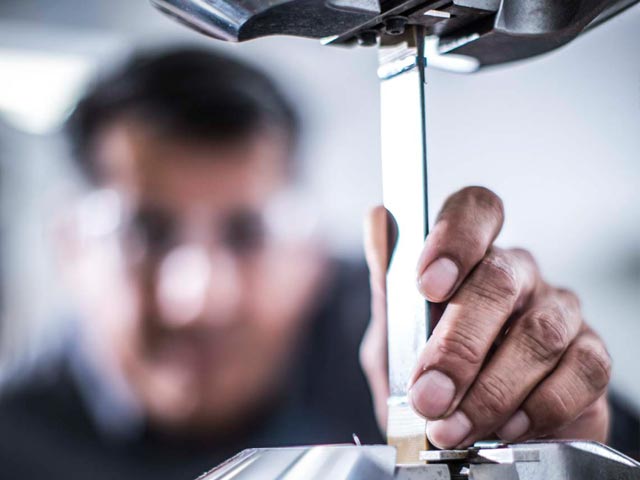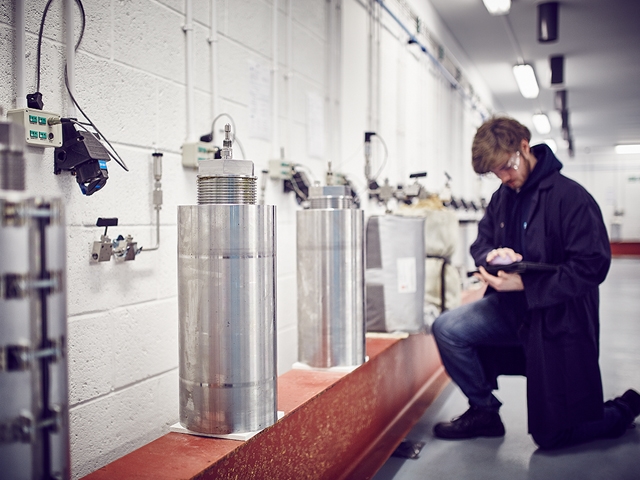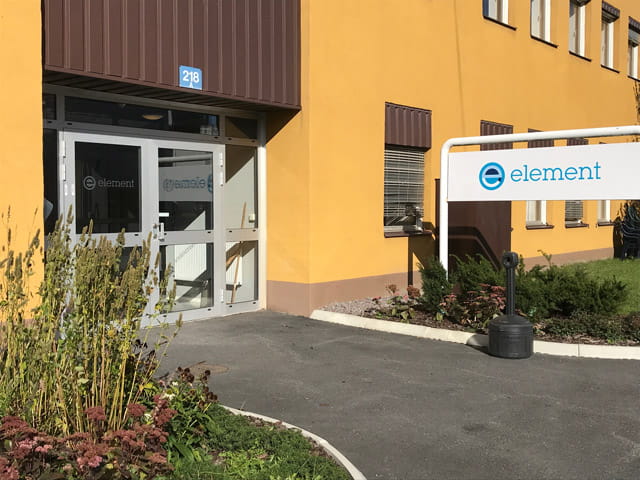Elements plastic pipes testing services help determine strength and ageing properties of piping materials and systems, serving plastic pipe materials manufacturers, pipe extruders, certification bodies and utility companies worldwide, helping water and gas supplies running smoothly.
We provide independent, reliable and reproducible test data for product classification and life time evaluation. Our capabilities include hydrostatic pressure testing, chlorine resistance testing, high flow circulation loop testing and crack propagation. Our plastic pipes testing facility in Sweden is one of very few independent laboratories globally in this field with a capacity of 5,000 test stations.
Standardized, accredited and fully independent testing
We provide performance and type testing according to standardized procedures for certification and approval purposes. Our testing services are ISO/IEC 17025 accredited to international ISO, ASTM, DIN, CEN, GB and AS/NZS standards.
From rental agreements to quick setup for small projects
As your Testing Partner, we offer rental agreements for long-term projects or serve as an extension of internal test capacity with quick test setup and online 24/7 project monitoring.
Advisory services, engineering and R&D
Our experts provide advisory services in plastic pipes testing, with deep technical expertise in standardization, approvals, test program optimization and interpretation of test results based on solid experience. We also offer applied testing focusing on new applications and assessment of new and improved properties.
For more information about our plastic pipe and pipe fittings testing, or to request a quote,contact ustoday.
More details
Other Product Qualification Testing Services
Accelerated Aging
Accelerated Weathering Testing
Acceleration Testing
Aircraft Ditching Testing
Altitude Testing and Simulation
Bird Strike Testing
Breath Alcohol Ignition Interlock Device
Component High Cycle Fatigue Testing
Dynamics Testing
Advisory Services
电磁兼容性(EMC)测试
Electronics Test Methods
Environmental Testing
Explosive Atmosphere Testing and Certification
Flame Fire and Flammability Testing
Flame Resistance and Fire Proof Testing
Fluid Susceptibility Testing
Fuel System Testing
Hail Impact Testing
HALT Testing and HASS Testing
High Cycle Fatigue Testing
High Level Acoustic Noise Testing
高加速的年代tress Testing
Hose Testing
Humidity Testing
Hybrid and Electric Vehicle Battery Testing
Ingress Protection Testing
International Certifications and Approvals
Liquids and Fuels Testing
Low Lubricity Aircraft Fuel Testing
MIL-STD-810 Testing
Pneumatics Testing
Pressure Testing
Product Certification Services
Product Compliance Services
Product Safety Testing
RTCA DO-160 Testing
Salt Fog and Salt Spray Testing
Sand and Dust Testing
Seismic Testing
Shock Testing
Space Simulation
Spin Testing
Structures Testing
Temperature and Thermal Testing
Thermal Vacuum Testing
Towing Trailer and Hitch Product Testing
Vibration Testing
VOC and SVOC Testing
Wireless Radio Testing
Zigbee Certification Services
making certain for nearly 190 years
More from Element

services
Polymer Testing
我们提供聚合物,弹性体,热塑性塑料,复合材乐动娱乐官网料和结构粘合剂的世界级材料专业知识。
Read more

services
High Pressure High Temperature (HPHT) Testing
Element offers an advanced HPHT testing program for polymers, metals, coatings and components used in highly aggressive environments.
READ MORE

services
Environmental Testing
Element can provide you with critically important data on your product or part's performance in response to typical or extreme environmental stresses and conditions.
Read more

Location
Linkoping - Tannefors
Element Linkoping - Tannefors provides material and product testing services for metals, composites, coatings, adhesives, fuels and more.
Element Linkoping












